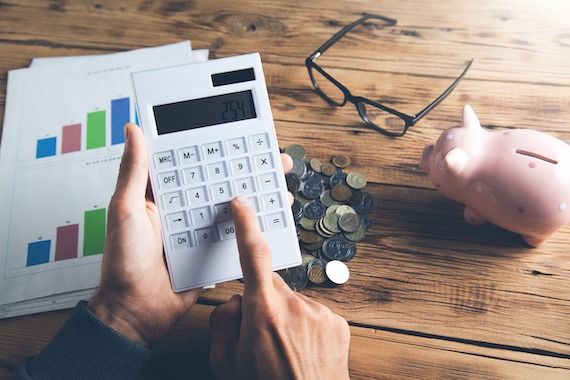(Photo: 123RF)
It’s most financial advisors’ favorite time of year: January. It’s also financial health month. Now is the time to look to the future and plan the 2024 budget, but also to reflect on what worked and what didn’t in 2023.
And it’s fair to say that it’s been a tricky, even difficult, year for many Canadians. The government is committed to limiting budget deficits and avoiding exacerbating the central bank’s efforts to bring inflation back to its preferred 2% target, as outlined in its fall economic statement.
In the meantime, many of us have to worry about rising mortgage payments and bills. So what can we do? I spoke with Steve Bridge, Certified Financial Planner, and Alim Dhanji, Senior Wealth Advisor, and here are their top four ways to improve financial well-being this year:
Budget strategically
“Adjust your budget to account for the increasing cost of living. Set priorities and identify areas where you can reduce your spending; this can help you maintain your financial stability during economic fluctuations,” explains Alim Dhanji.
Steve Bridge talks about “clarity.” According to him, few people know exactly where their money is going; only 3 to 5% of them really know. The big question is:
Is your money going where you want it to?
According to him, a budget is divided into four categories:
Fixed monthly costs: mortgage, cell phone bill Variable monthly costs: Groceries, gas, restaurants, toiletries, pet food Annual costs: property tax, Costco membership Random costs: clothing, gifts, travel, repairs car, home repairs
“Being clear about where the money is going gives you the power to choose,” adds Steve Bridge.
Have an emergency fund
Year after year, people find themselves financially stuck when faced with emergencies.
Alim Dhanji advises building and maintaining an emergency fund to meet unforeseen expenses; Ideally, this fund should cover six to twelve months of living expenses.
“The emergency fund acts as a financial buffer, providing a safety net during periods of uncertainty and reducing the impact of sudden financial shocks,” it adds.
Control your taxes
Steve Bridge often sees clients stumble on taxes. He advises asking yourself the following question: “How can I minimize the amount of my taxes? How can I minimize the amount of tax I pay? Consider using RRSPs, TFSAs and RESPs (this is not a tax reduction, but free money).
“Tax planning is not a one-off exercise,” he says.
The best use of the TFSA is for long-term investing — even if it says “savings account” in the name. The ideal is to invest in it. This is a financial misstep that we continue to see.
Here is an example :
Ali, 31, has $5,000 and is starting to invest it in his TFSA this year. Over the next 20 years, he added $5,000 a year. It maintains a rate of return of 6%. Inflation hovers around 2%. In 2044, he will have accumulated just under $200,000. It’s not so bad. If Ali did exactly the same thing with cash, he would save perhaps $20 more than the $105,000 in contributions he made. Maybe.
Determine your goals
“I’ve never been a big fan of goals,” says Steve Bridge. Today, that’s where he starts with his clients, because the goals are so important. The short, medium and long term goal categories are a good place to start. Some of the most common goals include early retirement, paying off debt, and maximizing RRSP usage; the place they occupy in the goal categories depends on the person’s life stage.
Another hot topic is mortgages due to rising interest rates. Lump sum payments, moving to accelerated payments every two weeks, and the pros and cons of mortgage renewal are all related considerations. How do your goals align with paying off your house?
All of these make great talking points for your next meeting with a financial advisor to discuss the current year’s budget.
Because ultimately, what is a budget? “Making a budget is telling your money where to go, instead of wondering where it has gone,” explains Steve Bridge. He adds that it’s his new favorite quote.
2024-01-05 17:17:41
#tips #improve #financial #health


